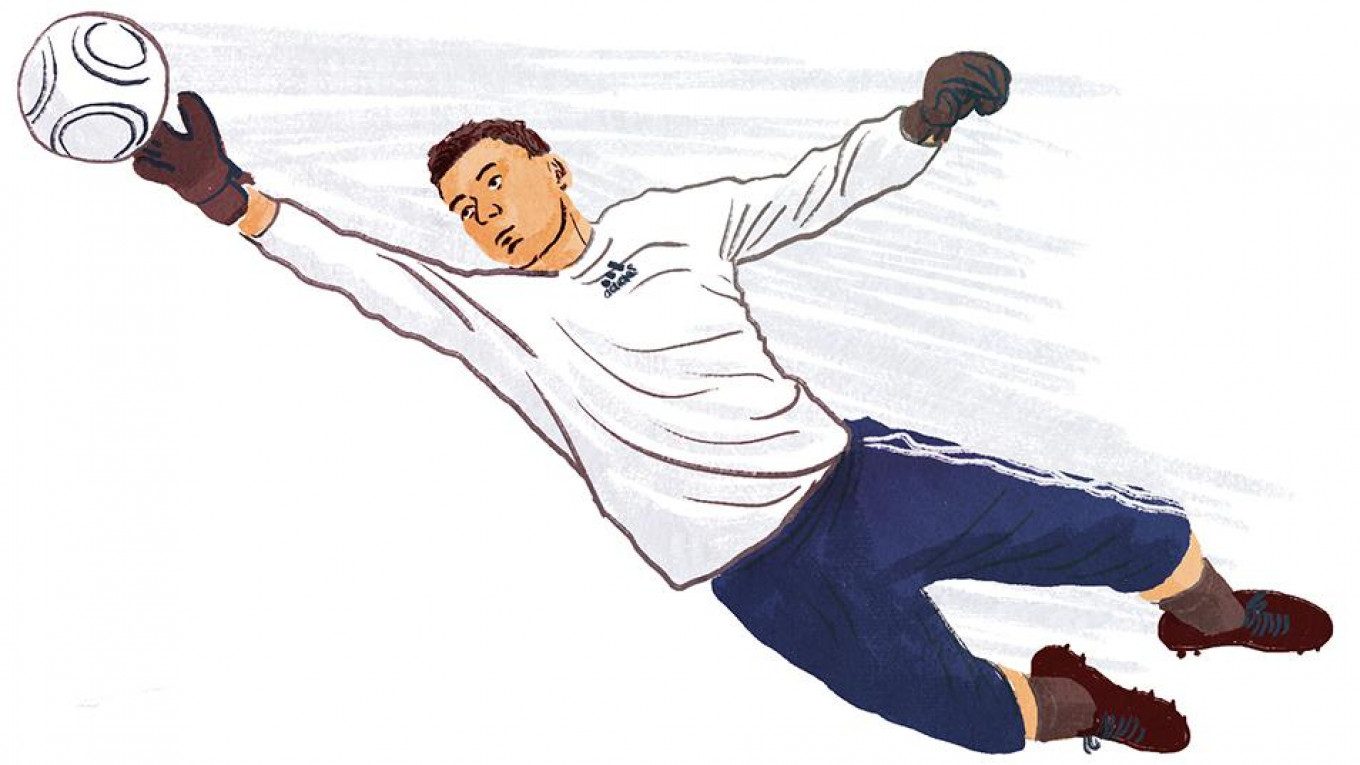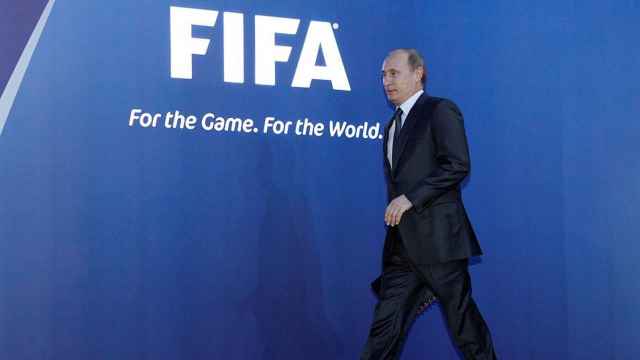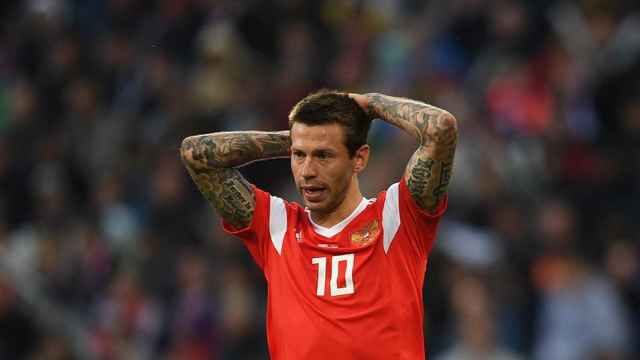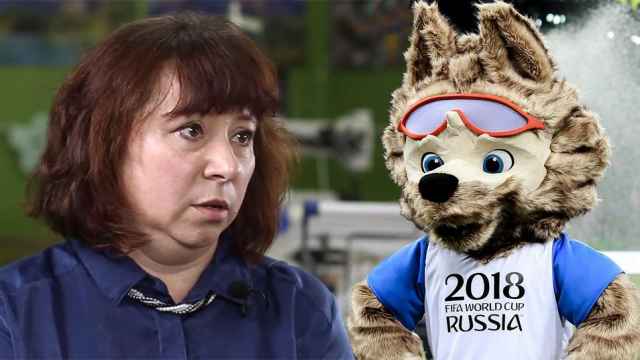On a crisp, cool morning in early November, the Russian national football team trained on the outskirts of Moscow in preparation for friendly matches against Argentina and Spain, two of the favorites to raise the FIFA World Cup trophy in Russia this summer.
Spirits were high. Jogging around a dewy field in front of a group of journalists, the team broke out in laughter when one player collided with a training mannequin and was sent sprawling to the ground.
Perhaps the players’ moods should have been more somber. Hosting its first World Cup from June 14 to July 15, Russia will mark another, less proud record. For the first time in the tournament's 88-year history, the host will field the lowest-ranked team.
The reason for the national team’s plight: An overweening Russian state that limits the freedom of the country’s professional clubs, coddles Russia’s top players and has hollowed out talent, football analysts and managers say.
“This generation of footballers is nowhere near the level of 10 years ago,” says Russian football journalist Igor Rabiner.
High hopes
In 2010, when Russia was chosen to host the 2018 World Cup, it all looked very different.
Russian football was riding a triumphant high. During the 2008 European Championship, Russia reached the knockout stages of a major tournament for the first time, and even advanced all the way to the final four teams.
Confidence was so high in the quarterfinal match against the Netherlands, one of the world’s strongest sides, that when the Dutch equalized in the final minutes, a Russian commentator simply shrugged it off. “So what?” he cried. “We still have time!
Within minutes, Russia scored twice, with midfielder Dmitry Torbinsky finishing an inch-perfect pass from striker Andrei Arshavin, who then himself slotted the ball between the goalkeeper’s legs soon after. Half a million Muscovites poured into the capital’s streets to celebrate.
“That team could compete with England, Germany, Spain — anyone,” recalls Guus Hiddink, the team’s head coach at the time.
For optimists, the result had augured the beginning of a Russian golden age.
“Seize the moment!” wrote Rabiner, the journalist, after the match. “When have we ever known this — that Europe admires our play?”
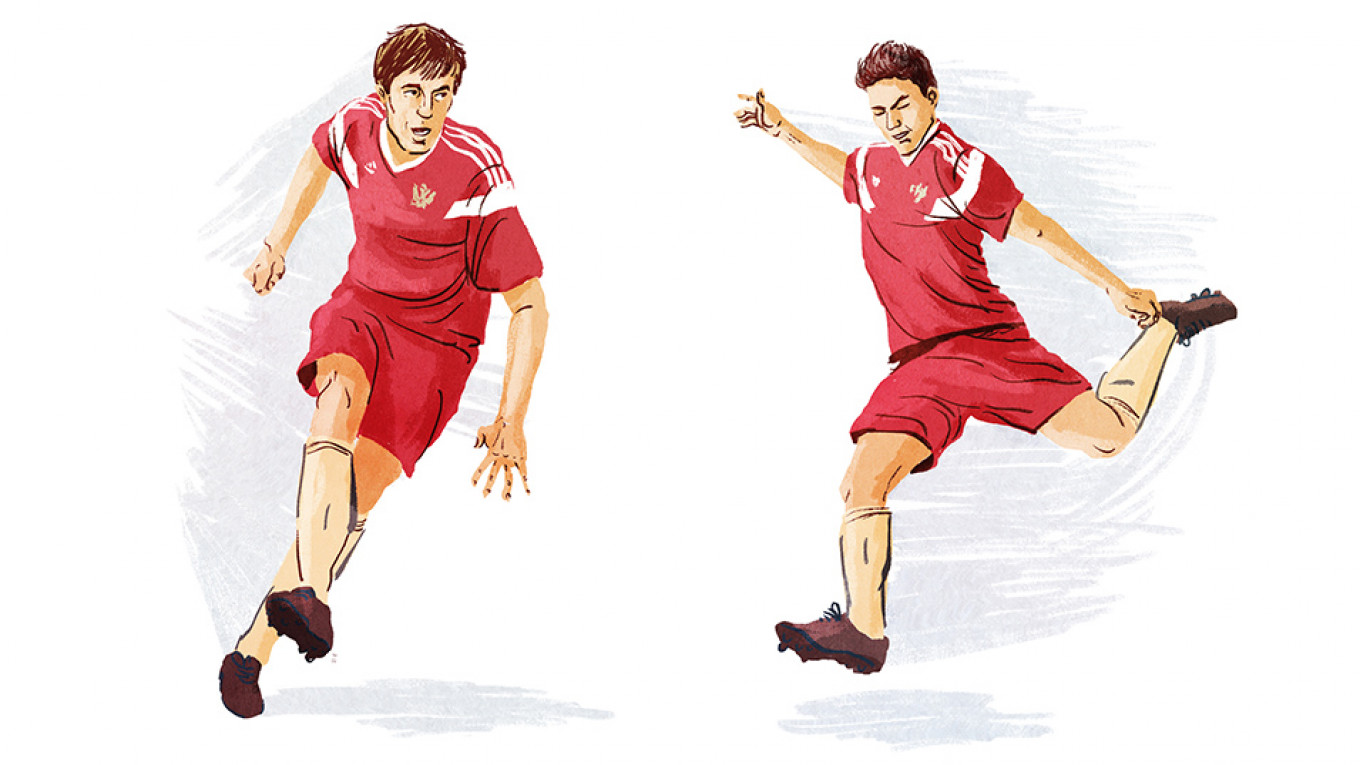
Fairytales
In retrospect, however, Euro 2008 was a fairytale run. Russia had barely qualified after squeaking past a weak Andorra on the final day of qualifying; it would have stayed home if England had not lost to Croatia.
Russia’s team was also led by Hiddink, a wizard at squeezing the best out of underdog teams. In 2002, he brought South Korea, which had previously never won a World Cup match, to the tournament semifinals; and in 2006, he took Australia to the competition for the first time in 32 years.
Yet managers in international soccer come and go, and when Hiddink inevitably departed in 2010, Russia’s team faltered.
Two World Cups and two European Championships have passed since then. And each time, Russia has failed to qualify or been knocked out in the group stage
‘Do the math’
The primary reason for the team’s perennial mediocrity is a state policy limiting the number of foreign players in Russia’s professional football league, say analysts and coaches.
Introduced in 2005 and tightened in 2015, the rule means that at least five of the 11 players fielded by Russian Premier League teams must be Russian citizens.
The aim was to help footballers improve by ensuring that they get time on the pitch. “Do the math,” said former Sports Minister and Russian Football Union President Vitaly Mutko in 2015. “You can see how many Russians are playing.”
Support for the policy comes from the top. As recently as October, President Vladimir Putin chastised Zenit St. Petersburg for having “eight foreigners running across the pitch” when the team plays in European competition matches.
Many, however, say the logic is flawed. Rather than improve, the guaranteed playing time has meant the best Russian players become “lazy,” said former Zenit St. Petersburg coach Andre Villas-Boas in 2015.
The measure also removes players’ incentive to move abroad to more competitive leagues where they may have to work harder to get playing time, says Toke Theilade, chief editor of the Russian Football News site.
Plus, the pay in the Russian Premier League is good, averaging $1.5 million per year, not far off the world’s top five leagues, according to a 2014 study. And with the top players hanging around in Russia, there are fewer vacancies for younger up-and-coming players to fill, stifling new talent.
Denis Romantsov, an editor at the site Sports.ru, puts the issue plainly. “In short,” he says, Russian players have “started to get worse.
Big state
As a fan, Vladimir Ageyev wants Russia to have a 2008-like run this summer. But as a professional, he wonders if losing all three group stage matches would do the country some good. “Perhaps, then, we will finally change,” he says.
For Ageyev, a professor at Moscow State University’s Sports Management Center, Russian soccer’s problems begin with massive state subsidies.
Eighty percent of Russian clubs’ incomes rely on the state, he says. And, according to a report last year by UEFA, European football’s governing body, Russian Premier League teams earned only 4 percent of their revenues through ticket sales and 5 percent from television rights — easily the lowest percentages of Europe’s top 10 leagues.
That means clubs are not run like competitive businesses, says Ageyev. It also gives huge power to politicians and encourages top football officials who want to feel secure in their jobs to pander to Putin and Mutko.
“It really is a closed club,”says Theilade. “It’s difficult to get in as an outsider unless you go out and buy your own team.”
If the state lets go, Russian football could thrive, says Ageyev. He points to FC Krasnodar, a club in southern Russia founded 10 years ago by billionaire Sergei Galitsky. The club’s self-professed aim is to stock its team with players trained in its in-house football academy, and it is already starting to churn out some of the country’s best talent.
“We Russians like to say about ourselves that we love extremes,” says Ageyev. “Either we stay in one place, or we totally change.”
If left up to him, it’s time to tear off the band-aid. “The longer this goes on,” he says, “the more painful the revolution will be.”

Feeling lucky
Several days after the training session in November, Russia lost its friendly match against Argentina 1-0, a misleading score considering how thoroughly the Argentines dominated the game.
Following the match, Russia’s coach Stanislav Cherchesov was stubbornly optimistic. “We can only start growing when we play at high speeds against the world’s leading teams,” he said.
In March, Russia was given another opportunity to face off against top sides, France and Brazil. Both teams regularly make the final stages of the World Cup and both beat Russia squarely. (Russia will also meet Turkey and Austria in friendly matches before the competition begins June 14.)
The issue, some argue, is that lately Russia has not had much opportunity for growth. While the other 31 teams in the World Cup have spent the past two years competing to qualify, Russia, as the host, entered automatically.
Still, luck has been on Russia’s side, with the December draw in Moscow handing Russia one
of the weakest of the eight World Cup groups. Russia’s includes a strong team in Uruguay, but also Egypt, which last qualified for a World Cup in 1990, and Saudi Arabia, which last won a tournament match in 1994. Two of the four teams will go through.
Perhaps, then — even with all of its issues — 2018 might be the year that Russia advances out of the World Cup group stage. And after that? Well, fans might well hope for another miracle.
This article first appeared in our special “Russia in 2018” print edition. For more in the series, click here.
A Message from The Moscow Times:
Dear readers,
We are facing unprecedented challenges. Russia's Prosecutor General's Office has designated The Moscow Times as an "undesirable" organization, criminalizing our work and putting our staff at risk of prosecution. This follows our earlier unjust labeling as a "foreign agent."
These actions are direct attempts to silence independent journalism in Russia. The authorities claim our work "discredits the decisions of the Russian leadership." We see things differently: we strive to provide accurate, unbiased reporting on Russia.
We, the journalists of The Moscow Times, refuse to be silenced. But to continue our work, we need your help.
Your support, no matter how small, makes a world of difference. If you can, please support us monthly starting from just $2. It's quick to set up, and every contribution makes a significant impact.
By supporting The Moscow Times, you're defending open, independent journalism in the face of repression. Thank you for standing with us.
Remind me later.



